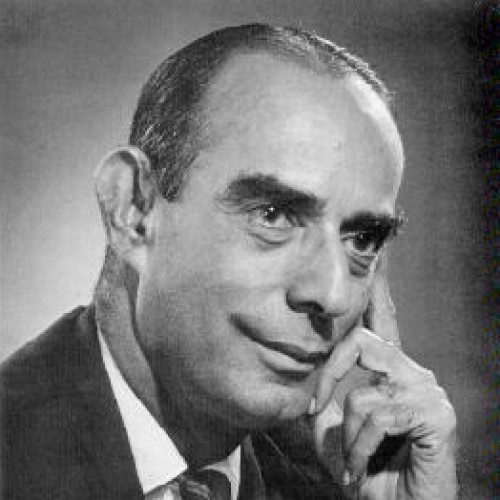Early Life
Minocher Rustom Masani, fondly called Minoo Masani, was born on 20 November 1905 into a Parsi family that had migrated from Gujarat to Mumbai. His father, Rustom Masani, was a writer, journalist and scholar in Persian and English, and was knighted by the British Crown. His mother, Manijeh, worked as a teacher in a Gujarati school.
He went to Mumbai’s Cathedral High School and New High School (now Bharda High School). Following his father’s footsteps, he joined Elphinstone College, Mumbai and graduated with a B.A. degree in 1925. At Elphistone, he met Yusuf Meherally, a staunch socialist who advised him to study law and got him interested in politics.
Law and politics were the focus of Masani’s life in the subsequent years in London. Here, he obtained a law degree from the London School of Economics (LSE), qualified as a Barrister at Lincoln’s Inn, and engaged in student politics.
At LSE, Masani developed an affinity towards socialism and transformed into a fierce Labour Party member. He was widely popular and became the Chairman of the University Labour Party. Despite being passionately anti-communist, Masani provided a political platform for various Communist Party leaders of the time.
In 1928, he finished his degree at LSE and returned to India. The firebrand political leader gave up politics for the relatively demure legal life at the Bombay Bar.
Role in India’s Independence Movement
In 1932, his close friend Yusuf Meherally was arrested for taking part in the Civil Disobedience Movement. This was a turning point in Masani’s life. The dormant political firebrand Masani now resurfaced. He abandoned his law career and swiftly joined the underground strand of the Civil Disobedience Movement. He assisted Uma Shankar Dixit, the secret leader of the Bombay Congress, to organise volunteers and distribute pamphlets. This put him on the British government’s radar who picked him up. He was detained without trial for two months.
Masani rose up the Congress Party ladder to become the President of the Bombay Provincial Pradesh Congress Committee. He returned to jail in 1933, this time courting arrest. He spent a year at Central Prison, Nasik where he was in familiar company: his close friends and fellow Congress leaders Jayaprakash Narayan and Yusuf Meherally. In prison, the trio laid the foundations of what would become the Congress Socialist Party which would attract other Congress leftists like Kamaladevi Chattopadhyaya.
Masani’s political career did not just revolve around movements, protests and jails. He held public offices that began with his election as a Councillor, Bombay Municipal Corporation in 1934. Ten years later, after another stint in prison for participating in the Quit India Movement, he was elected as the Mayor of Bombay in 1943. A year later he entered the Central Legislative Assembly.
Contribution to Constitution Making
Masani joined the Constituent Assembly from Bombay on a Congress Party ticket and represented the Assembly’s socialist strand. He did not actively participate in the debates compared to say someone like K.T. Shah – another prominent socialist in the Assembly.
Later Contributions
After independence, he was posted as India’s ambassador to Brazil from 1948 to 1949 and was a member of the Provisional Parliament between 1949 and 1952.
In 1959, Masani helped found the Swatantra Party alongside C. Rajagopalachari and other senior congressmen. Nehru was deeply critical of the Party, dubbing it the ‘Maharaja Party’. But the organizing work done by Masani ensured that the Party had become the principal opposition to the Congress in the Lok Sabha by 1967.
Masani served as a member of the Lok Sabha from 1957 until 1971, initially as an independent candidate and later as Swatantra Party member.
Five years after India’s independence, Masani founded Freedom First, a liberal monthly magazine. During the emergency, he successfully challenged the censorship order in 1976 in the Bombay High Court.
He set up several advocacy organizations which included the Leslie Sawhney Programme for Training in Democracy (1968) that educated young people in citizenship, the Society for the Right to Die with Dignity (1981) which advocated for euthanasia for the terminally ill, and the Project for Economic Education (1985) that developed public awareness around the economy.
Minoo Masani passed away on 27 May 1998 after battling a prolonged illness and was cremated as per his wishes sans religious ceremonies.
Key Writings
Masani Published two memoirs: Bliss Was it in That Dawn and Against the Tide. His other publications include: Of Four Real Leaders: Some Reminiscences, Our India, We Indians, Our Growing Human Family, and Prague (Let’s Go).
- During the debate around Article 18, Masani argued for the abolition of titles of all kinds as they were a possible source of corruption.
- In the Sub-Committee on Fundamental Rights, Masani introduced a provision to protect interfaith marriages. He had the support of B.R. Ambedkar, Hansa Mehta and Rajkumari Amrit Kaur. But other members of the Committee were not persuaded and his proposal lost out by a small margin after a vote.
- In the same Sub-Committee, he proposed that the uniform civil code be included in the Constitution as a fundamental right and not a directive principle. Again, the proposal did not survive a vote.
- Profiles in Courage: Dissent on Indian Socialism by Parth J. Shah (Centre for Civil Society, 2001)
- Minoo Masani by S.V. Raju (National Book Trust India, 2007)
- Masani’s Manifesto by Atul Chaturvedi (The Indian Express, 2008)
- No accident India forgot Swatantra leader & my father Minoo Masani, the beef-eating Parsi by Zareer Masani (The Print, 2019).
- Minoo Masani: From Socialism to Liberal Swatantra Party by Sanjeet Kashyap (Spontaneous Order, 2019)
- Radio Autobiography of Minoo Masani (Prasar Bharati Archives)

